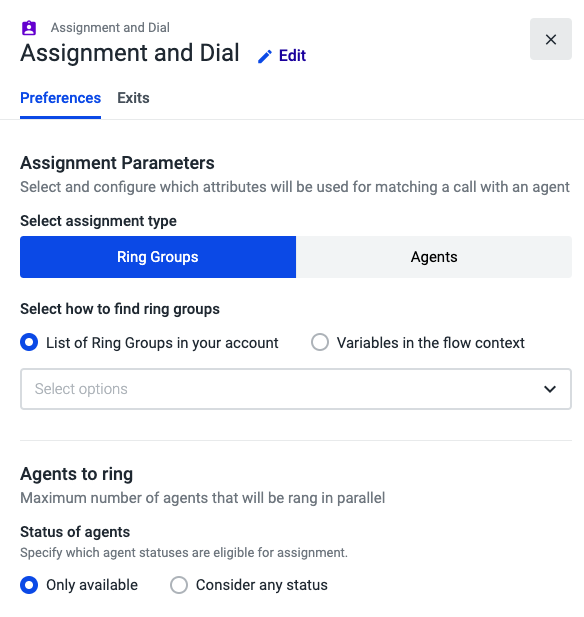Assigning a Call

When assigning a call to one or more ring groups , the system uses several parameters to determine the best agent to answer the call:
- Ring group or list of agents. These are mutually exclusive, i.e. the call can be assigned either to one ring group (and only one in this version of Studio) or to a static list of specific agents (or a list of agents defined via an interaction variable).
- Agent Availability. Agents need to be in the “available” status to be able to receive interactions.
- Idle Time. If multiple agents match the above conditions, then the “most idle” agents are chosen. Idle time is defined by the time spent between the last interaction that was handled by the agent and the time of the assignment request. Agents who are idle the longest will be chosen first.
- Priority Level and Wait Time. Talkdesk will prioritize callers with higher priority interactions and interactions that have been waiting the longest will always be tackled first.
Here are the possible outcomes of an assignment (besides the call being answered by an agent):
- No answer.
- No match.
- Max waiting time reached.
For each possible “negative” outcome, you need to make a decision on what to do next. This will allow you to have a fallback process in place and customize the way you want these 3 scenarios to be handled. For example, if an interaction reached the maximum waiting time, you can decide to bump its priority. If there are no agents matching your criteria, then you can redirect the interaction to a new assignment step with less stringent criteria.
Updated 3 months ago